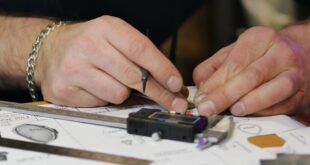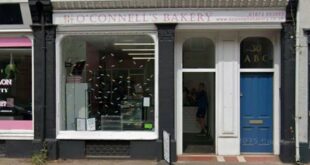You need stamina, subtlety and an exceptional commitment to your community and local democracy
With around 120,000 households in every borough and 32 boroughs in all there are still a lot of doors to knock on and thousands of leaflets to distribute in the run up to this year’s borough elections on 5 May. The only people more familiar with letterboxes than political activists are working for the Royal Mail.
Canvassing is a hard-earned skill, as I have learned from experience of running for a council seat in London. Anything slowing you down is a nuisance. Letterboxes come in all shapes and sizes – big, small, vertical, spring-loaded, bristle-lined – and you soon get to know which ones you hate. I always dreaded the ones at the bottom of a door.
Once, while stooping down to push a leaflet through, the owner opened the door and was startled to find my great hulk bent prostrate on their doorstep. A campaigner’s dream is a block of modern flats where all the letterboxes are grouped in one place on the outside of the building, allowing you to rattle through them in double quick time.
Campaigners from all parties and none share common experiences. They love to focus on the bread-and-butter issues, such as potholes – there’s even a Twitter account dedicated to photographs of campaigners pointing at them – but it’s hard to have a conversation on the doorstep without national issues coming up. Attempts to bring the conversation back to the local by pointing out that, say, Tony Blair or David Cameron aren’t standing here don’t usually end well.
I know of two people who’ve been bitten by dogs when canvassing, but my worst run in with an animal involved an over-friendly cat, which failed in its attempt to jump from a bush onto my shoulders and in its panic scratched my face and neck so deeply I was covered in blood.
You’ll like canvassing if you enjoy meeting new people, but you need to find the engagement sweet spot – enough time with them to get a sense of who they are voting for and what issues exercise them, but no more. Long conversations are not ideal, but it is hard to walk away. Never, ever go inside, not least because it is unsafe to do so, but also because three cups of tea later an hour has passed.
Most of the time, you speak with genuinely nice people who are surprised and mostly pleased that someone has taken the time. You do get angry people, and it is best to detach yourself from them as quickly as possible. You are unlikely to get them to change their mind, although I recall one voter who was so impressed that I’d endured his full-on barrage for 10 minutes he said he’d vote for me.
You also get the weird and wonderful. I was once asked whether it’s legal to feed live animals to pets. I suggested asking London Zoo. Pleased with my answer, the resident promised me their vote while pointing over their shoulder at 20 or so rats writhing away in the corner of the room.
As polling day approaches the blisters multiply and your appreciation of good footwear reaches new levels. A diet of tea, fizzy drinks and biscuits plus the odd pint takes its toll. And even as the votes are counted – often early into the morning after you’ve been on your feet since 7.00 the previous morning – there’s still work to be done.
Most results are clear cut, but some can be very close, as with the two elections I fought: I lost one by 23 votes and won the other by 28. There can be a recount, perhaps two. Activists crowd around the counting tables, trying to spot ballot papers that have placed in the wrong pile. There’s much haggling to be done with returning officers over what constitutes a vote. Once or twice I successfully argued that a pencil dot against a name represented a cross. You also get to see some of the scrawl written on ballot papers by those making an alternative democratic statement – “none of these crooks”.
After the results are declared, winning candidates immediately have a pile of papers and forms to sign thrust on them – a sign of what is to come over the coming years. My strongest memory of being a councillor is of piles of committee papers, inches thick, thumping on to my doormat on a weekly basis.
Being part of an election campaign can be great fun, even when the political weather makes it hard going. I made many of my best friends during my political activist days. When I talk about my experiences I often stress that being in a political party is a social thing as much as anything, in the same way as being in any other club, group or society.
Party activists are nearly all volunteers, dedicating spare time for free and I take my hat off to those who get elected: being a council member is a privilege and shows a worthy commitment to your community. I didn’t set the world on fire when I was a councillor and I struggled to combine the many weekday evenings at the Town Hall with having a full-time job. I know, however, that most councillors are in it for the right reasons. So good luck to all candidates and campaigners and remember – beware of the cat.
Nick Bowes is chief executive of think tank Centre for London. Follow Nick on Twitter.
On London is a small but influential website which strives to provide more of the kind of journalism the capital city needs. Become a supporter for £5 a month or £50 a year and receive an action-packed weekly newsletter and free entry to online events. Details here.


